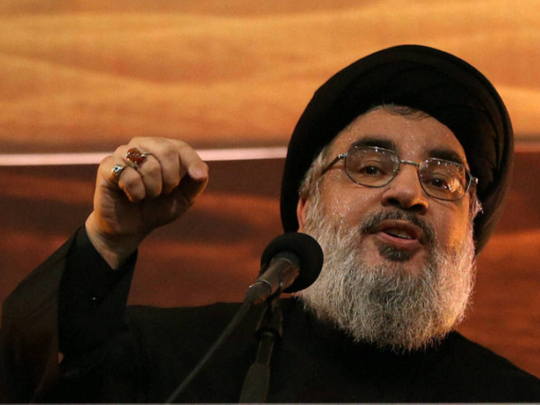
Abu Dhabi: The noose is tightening on Hezbollah day after day, even in the Shiite circles close to it, local media reported.
In the latest chapter of this restlessness, people of the Babylonian town in southern Lebanon went out on Friday to the streets, chanting, “There is no god but God .. Nasrallah is the enemy of God”, during the funeral of a resident of the town.
SEE ALSO
- It's a long weekend: Here are 21 things to do in the UAE
- UAE: Bank charges Dh2,940 for Marhaba Services, which is supposed to be a free privilege on my credit card
- UAE: I returned from an emergency leave to find out I was fired from my job
- Bollywood actor Randeep Hooda turns 44: 5 little-known facts about the actor
The dead, a young man named Hussein Khalil, fell in a dispute in the southern town of Loubia, in which Hezbollah’s weapons were used, despite what militia leader Hassan Nasrallah claims that they are dedicated to liberating Jerusalem and defending Lebanon.
Apparently, the job of Hezbollah’s weaponry has changed since the Israeli withdrawal from the south two decades ago, as it was being used either internally against the Lebanese, or externally, to kill Syrians.
The dead man is not a stranger to the incubating environment for Hezbollah, as he was a supporter of the Shiite Amal Movement, led by Hezbollah’s ally Nabih Berri, Speaker of the Lebanese Parliament.
Along with Khalil, six others were injured by the same weapon in a quarrel related to hanging banners of Ashura Day commemoration ceremonies in the town.
Witnesses from the town recounted that the problem occurred after Hezbollah militants insisted on hanging their flags in a residential neighborhood by force and against the will of the people.
Ensuing tension ultimately led to the use of weapons on both sides.
Fidgeting in the foster environment
This problem reflects a state of restlessness in the Shiite environment, which Hezbollah considers its natural incubator, especially after the Special Tribunal for Lebanon has ruled that a terrorist with the Iranian-backed militia was responsible for the murder of former Lebanese Prime Minister Rafik Hariri.
Now the challenge for Lebanon is to end the malign influence Iran continues to exert over its political system, analysts say.
The extent of Hezbollah’s hostility to the tribunal was reflected in the fact that none of the four indicted suspects were made available to it. The entire trial was held in their absence, meaning it is highly unlikely that Salim Ayyash, who was found guilty, will ever serve a moment of the sentence the tribunal hand down.
Even so, as far as the hard-pressed Lebanese are concerned, there are some positives that can be taken from the judgment. For one, an internationally recognised body has publicly ruled that a Hezbollah operative committed the cold-bloodied murder of a democratically-elected Lebanese politician.
Ayyash is no ordinary Hezbollah operative. He happens to be the brother-in-law of Imad Mughniyeh, who helped to establish Hezbollah’s military wing. Mughniyeh was also the notorious architect responsible for, among many other atrocities, the lorry bomb attacks on the US embassy in Beirut in the early 1980s.
Mughniyeh was a constant presence in both Tehran, where he worked closely with senior members of Iran’s Islamic Revolutionary Guard Corps, including Quds Force commander Qassem Suleimani, and Damascus, where he lived with his family until he was killed by a joint CIA-Mossad operation in 2008.
Therefore, even though many will be disappointed with the tribunal’s overall findings, there is nevertheless enough material that can be drawn from Ayyash’s involvement in the murder to raise serious questions about whether Hezbollah should be allowed to participate in Lebanon’s political future.
Hezbollah’s ability to influence key political decisions in Lebanon is due primarily to the accord it reached with Lebanese President Michel Aoun in the year after Hariri’s murder.
“Hezbollah has no place in Lebanon’s future,” said Bahaa Hariri, who is campaigning for a new Lebanese constitution aimed at healing the country’s long-standing sectarian divisions. He also wants an end to the ability of countries like Iran to control Lebanon’s political destiny.








